How to get a better night's sleep at any age: sleep expert shares their tips
We asked an expert what the key is to great sleep in your teens, 20s, 30s, 40s, 50s and beyond
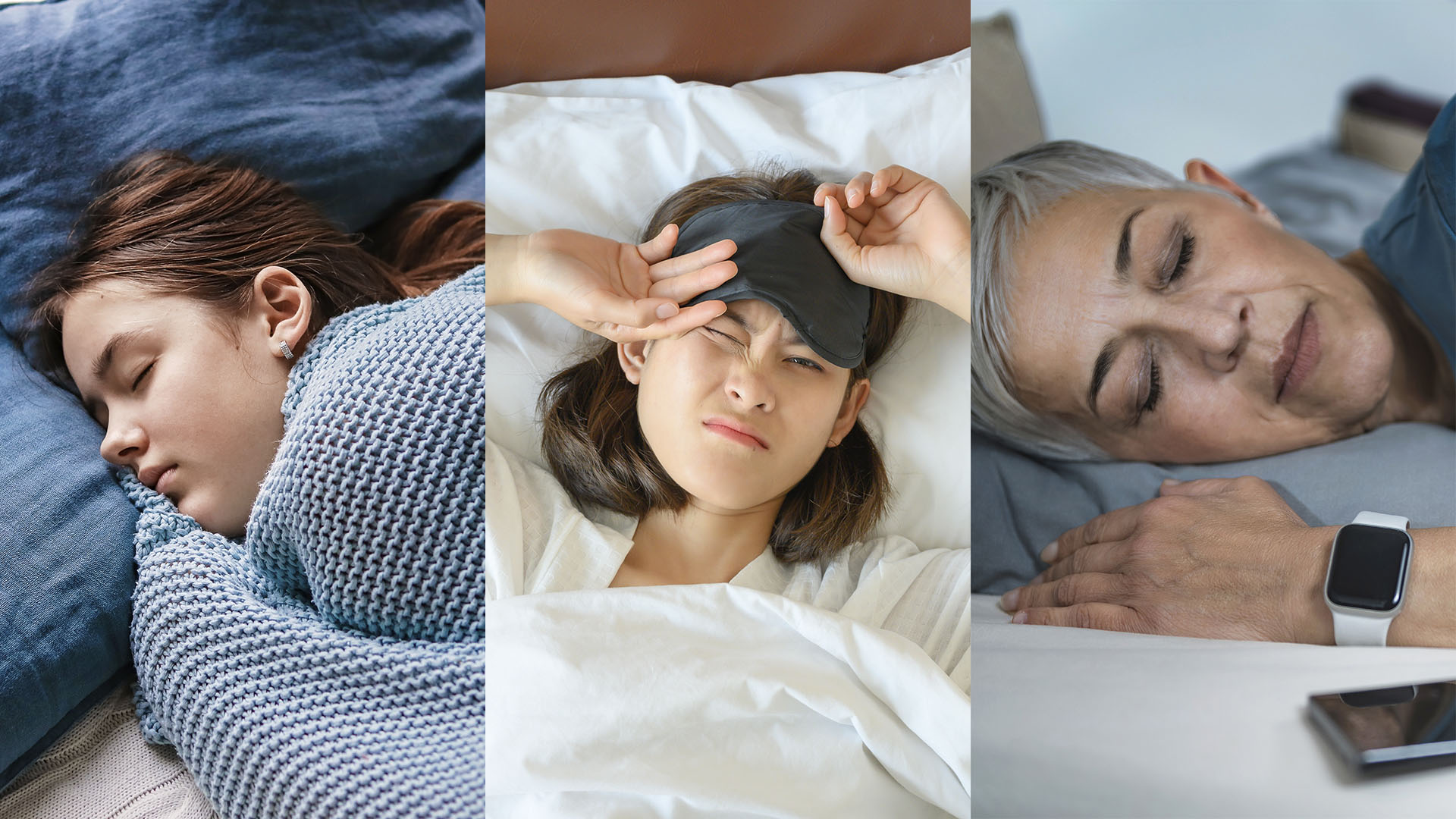
Sleep is important at any age. Regular, good quality sleep is vital for physical and mental health and development. While the rule of thumb is that adults need 7-9 hours of sleep a night, the exact amount of required sleep does vary by age. The challenges to sleep also shift as we move through life.
It's Sleep Week, and you might well be using this opportunity to sort your sleep habits out. Perhaps you've started using the 10-3-2-1-0 sleep rule to structure your bedtime routine, or have decided to invest in the best mattress for your sleep style. However, even if you've created the perfect sleep setup, the odds aren't always in your favor – everyone has their own challenges, both physical and external, that threaten that perfect night's sleep.
In this article, we spoke to a leading sleep expert to dig into the things that can impact negatively on sleep quality at points in your life, and the methods we can use to counter them. Here's how to get a great night's sleep at any age.
Teenager
Teenagers need plenty of rest to support all the mental and physical developments their bodies are going through at this point. It's recommended that those between the ages of 13 and 18 get around 8-10 hours of sleep a night.
As well as external distractions – tablets and TVs, busy routines, less adult supervision – when a person reaches their teenage years, their body clock actually shifts back, with their bodies producing sleep hormone melatonin later in the day. That means that naturally, teens may want to stay up until 1 or 2am, and wake up around 10 or 11am. The issue is that school hours mean they aren't able to shift back their wakeup times, even if they've gone to bed late the night before.
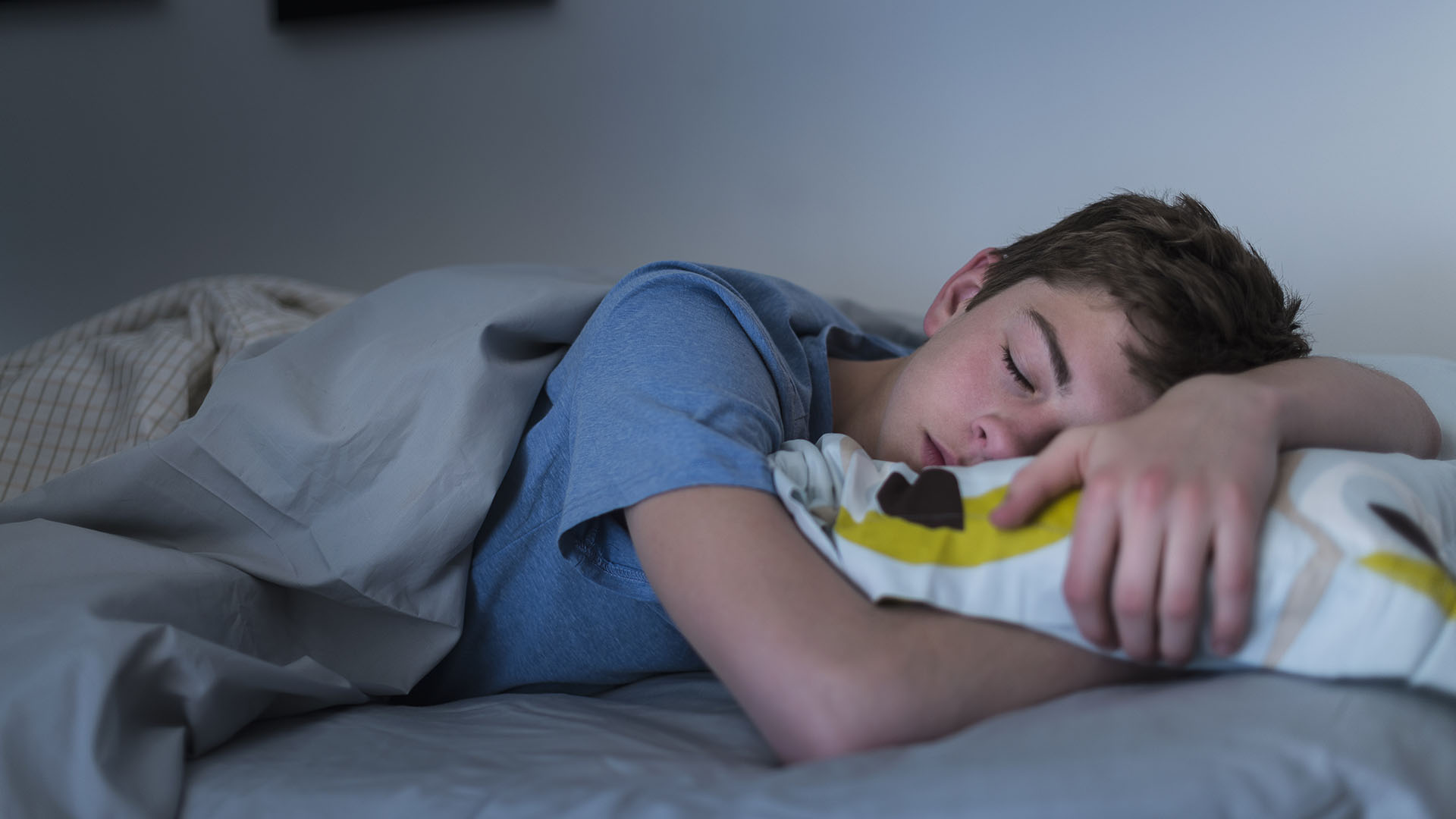
The issue is exacerbated if the teen then tries to 'catch up' on sleep at the weekends. "If teens are allowed to... have a long lie-in at the weekend then their circadian rhythm will struggle to shift earlier to help them fall asleep and wake up in a reasonable time for school on a Monday morning," explains Dr Lindsay, a chartered psychologist, neuroscientist, and sleep expert at And So To Bed. "It is like jet-lag. If they sleep in at the weekend then their circadian rhythm will stay in the later time zone for the school week."
Sleep tips for teenagers
- Set bedtime reminders
At any age, one of the best things you can do to promote better quality sleep is to get into a regular routine, with set wakeup and bed times throughout the week. This might be even more vital for teens. "It is really important that teenagers do things to offset the natural trend towards a later bedtime and later wake time," says Dr Lindsay. "Setting a bedtime reminder can help."
Get instant access to breaking news, the hottest reviews, great deals and helpful tips.
- Don't try and 'catch up' at weekends
"Despite sleep being the goal, teens should not 'catch up' by sleeping in for hours on the weekend," advises Dr Lindsay. "Late nights and long lie-ins can disrupt their circadian rhythm, making it harder for them to get up on a Monday morning again." Again, the aim is to go to bed at the same time each night and wake up at the same time each morning... even at weekend.
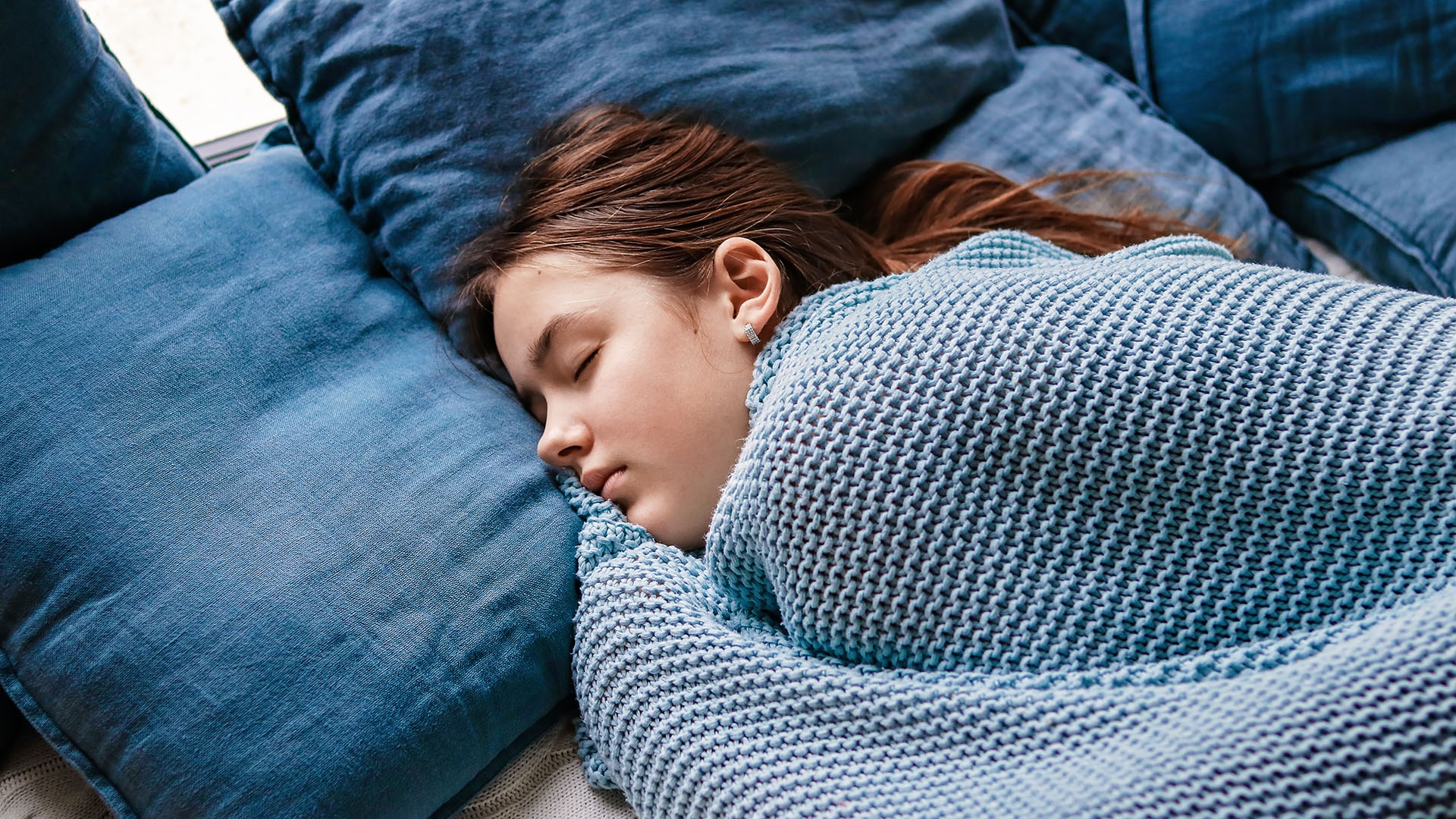
- Get some more light in the morning
One of the primary ways our bodies regulate our circadian rhythms is using light signals. Put simply, your body thinks that bright light means it's time to be awake and alert, and a lack of light means it's time to sleep. To increase energy levels in the mornings, teens should expose themselves to bright, and ideally natural, light early in the day – for example, by opening their curtains as soon as they wake up, or walking to school / to the bus stop.
- Keep screens out of the bedroom
The flip side of the above is that ideally, you want to lessen the amount of light you're exposing yourself to in the evenings too... which means limiting evening screen time. "Ideally teens should stop screens an hour before bed, as well as having limited screens in the bedroom itself," suggests Dr Lindsay. "Having screens in the bedroom means they are more likely to stay up late interacting with friends on social media or watching tv, keeping the brain stimulated (making the natural circadian shift even worse)."
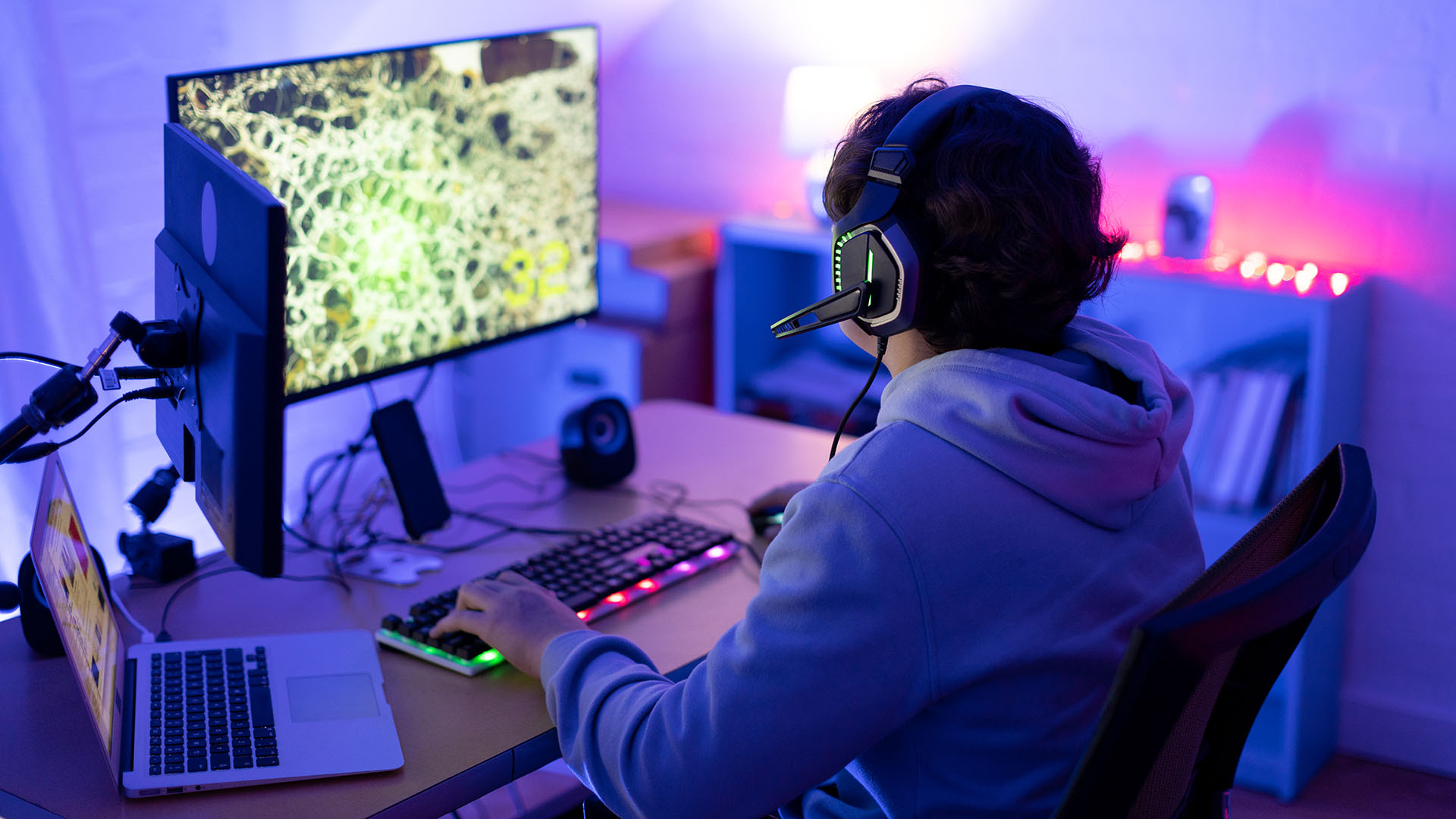
- Cut the coffee after midday
If the teenager is having trouble dropping off, caffeine intake be causing (or exacerbating) the issue. And remember, caffeine isn't just in coffee – you'll find it in chocolate and some fizzy drinks too. "Caffeine has an average half life of about 6 hours, meaning teens should ideally stop consuming caffeine at least 6 hours before bedtime," says Dr Lindsay. "Too much caffeine can stop them falling asleep whilst also reducing the amount of deep sleep they get."
Twenties
Because your brain is still developing until around the age of 25, young adults in their 20s should be aiming for 7-9 hours of sleep a night – slightly less than a teenager, but more than an older adult.
At this age, busy social lives, studying and job commitments are all vying for attention, and sleep might not always be the priority. There are a lot of life changes to navigate at this point, too – whether that's traveling, forging a career or perhaps starting a family. All of this can equate to more stress and poor sleep as a result.
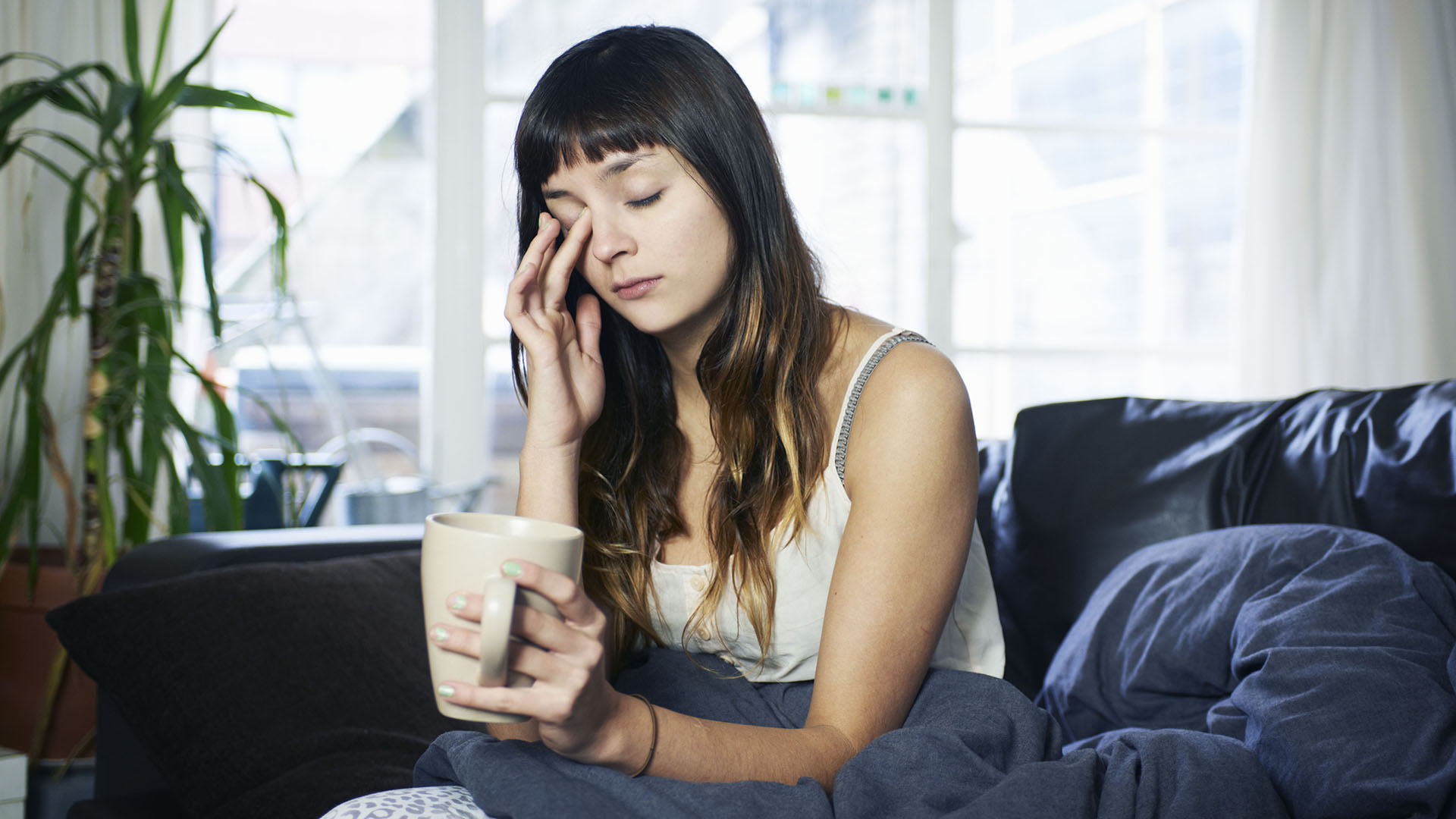
Sleep tips for 20-somethings
- Strike a balance
"It’s important that whilst you enjoy your active social lives in your early 20s, you also take time to slow down and think about what the lack of sleep might be doing to your health," suggests Dr Lindsay. Focus on creating good sleep habits and maintaining them whenever you can – so if you don't have a social event planned on a weeknight, don't stay up late binging a TV show to make up for it, for instance.
- Be mindful of 'social jet lag'
Those in their 20s are more likely to have a bigger disparity in schedules during the week compared to the weekend – perhaps getting up early to commute to work, and then socializing late into the night on Friday and Saturday nights. This can result in something called 'social jet lag', where you're essentially operating on different schedules on different days, and your body doesn't know when it's time to wake and when it's time to sleep.
- Train your brain to associate your bed with sleep
There can be a temptation to use your bed for just about any activity – conducting work, watching movies on a laptop, scrolling social media. The result is that your brain stops associating your bed with sleep. Try to reserve your bed for sleeping. In fact, if you're lying in bed and struggling to drop off, follow the 15 minute sleep rule: get up, go to another room and do something mindless until you feel sleepy.
Thirties and forties
Those in their 30s and 40s typically need 7-9 hours' sleep per night. By 30, your brain is fully developed, which means you don't need the extra snooze required by those in their early 20s or younger.
While your social schedule might have settled down a bit compared to your 20s, your 30s and 40s can bring a new selection of sleep issues. "This stage of our lives is usually when stress from work, finances and raising a family all start to kick in," says Dr Lindsay. "The key to getting a good night's sleep is identifying the cause of your lack of sleep and trying to combat it."
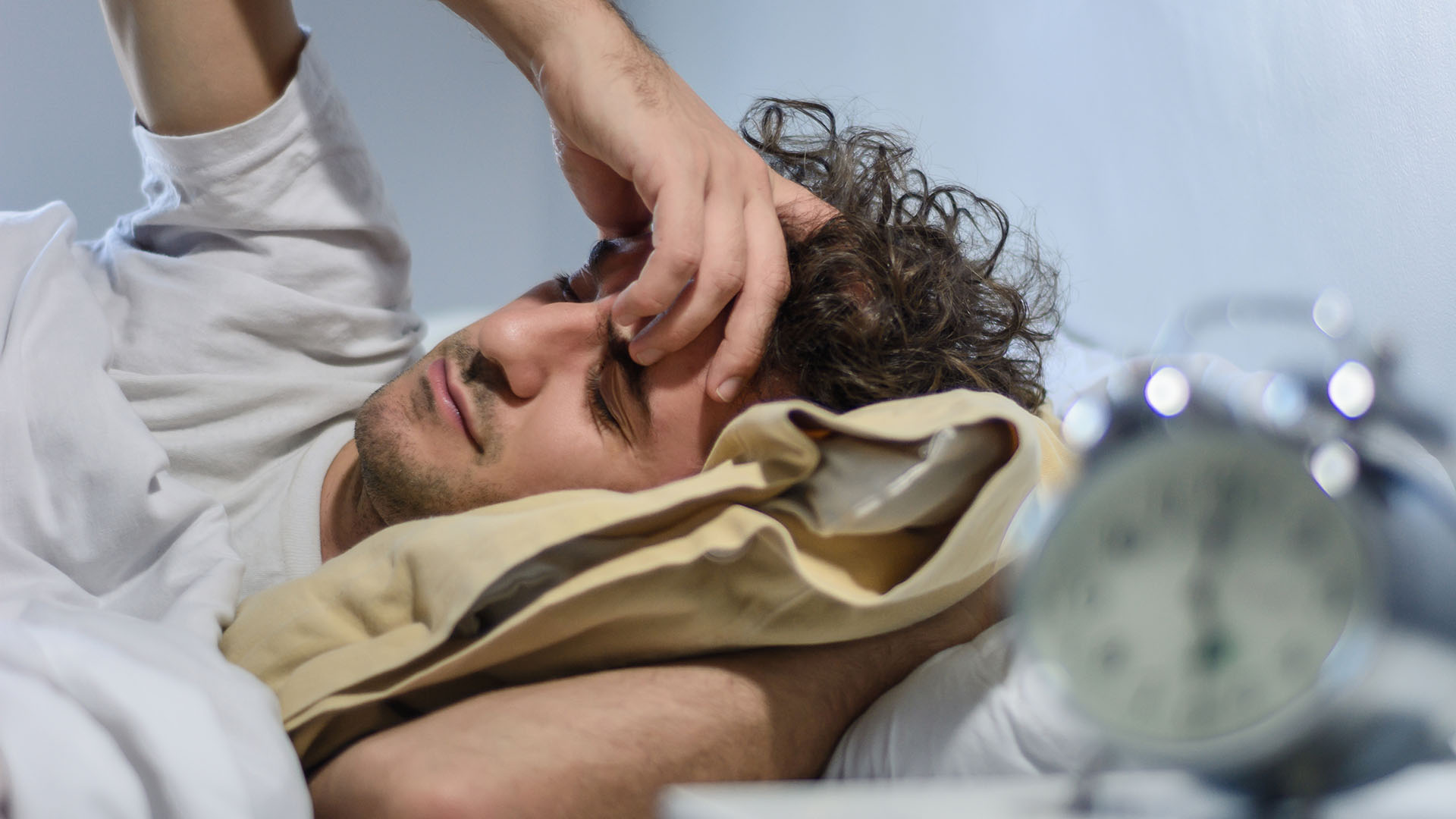
Later on in this time bracket, your body might start working against you, too. "Menopause typically occurs between 45 and 55 years old as a woman's estrogen levels decline," explains Dr Lindsay. "This may mean you will start to experience symptoms of peri-menopause. Due to a fluctuation in hormones, some women may experience sleep issues such as night sweats, hot flashes and insomnia." (More on tackling this in the next section.)
Men aren't off the hook, either: "Testosterone levels in your 40s naturally reduce, which can negatively affect the amount and quantity of sleep they get," she adds.
Sleep tips for 30- and 40-somethings
- Write down your stresses before bed
Many people find work stresses playing on their minds in the evenings, preventing them from winding down and making dropping off to sleep a struggle. Dr Lindsay suggests stopping working at least an hour before bed – including checking emails and putting together to-do lists.
It can also help to do a 'brain dump', where you take time to write out your concerns earlier in the evening. "Often getting it out our minds and out onto paper helps reduce stress meaning we may sleep better," says Dr Lindsay.
- Try a meditation method to calm you down
There are plenty of techniques geared towards helping calm your brain and body down, so you can drop off quickly. One popular one is the Military Sleep method – so called because it was originally developed in the military to allow soldiers to fall asleep in double-quick time, at any time, and in any place. Alternatively, the body scan technique is a simple meditation that has also shown to be helpful for those struggling with anxiety.
- Put your phone away
"Often the content on our phones can be over stimulating, both positively and negatively," says Dr Lindsay. Putting away your phone in the hour or so before bedtime can help give your brain time to wind down. There's also the issue of light: the illumination from our phone screens signal to the brain that it's time to be awake and alert, delaying production of the sleep hormone melatonin, which can make it more difficult to fall asleep at the right time.
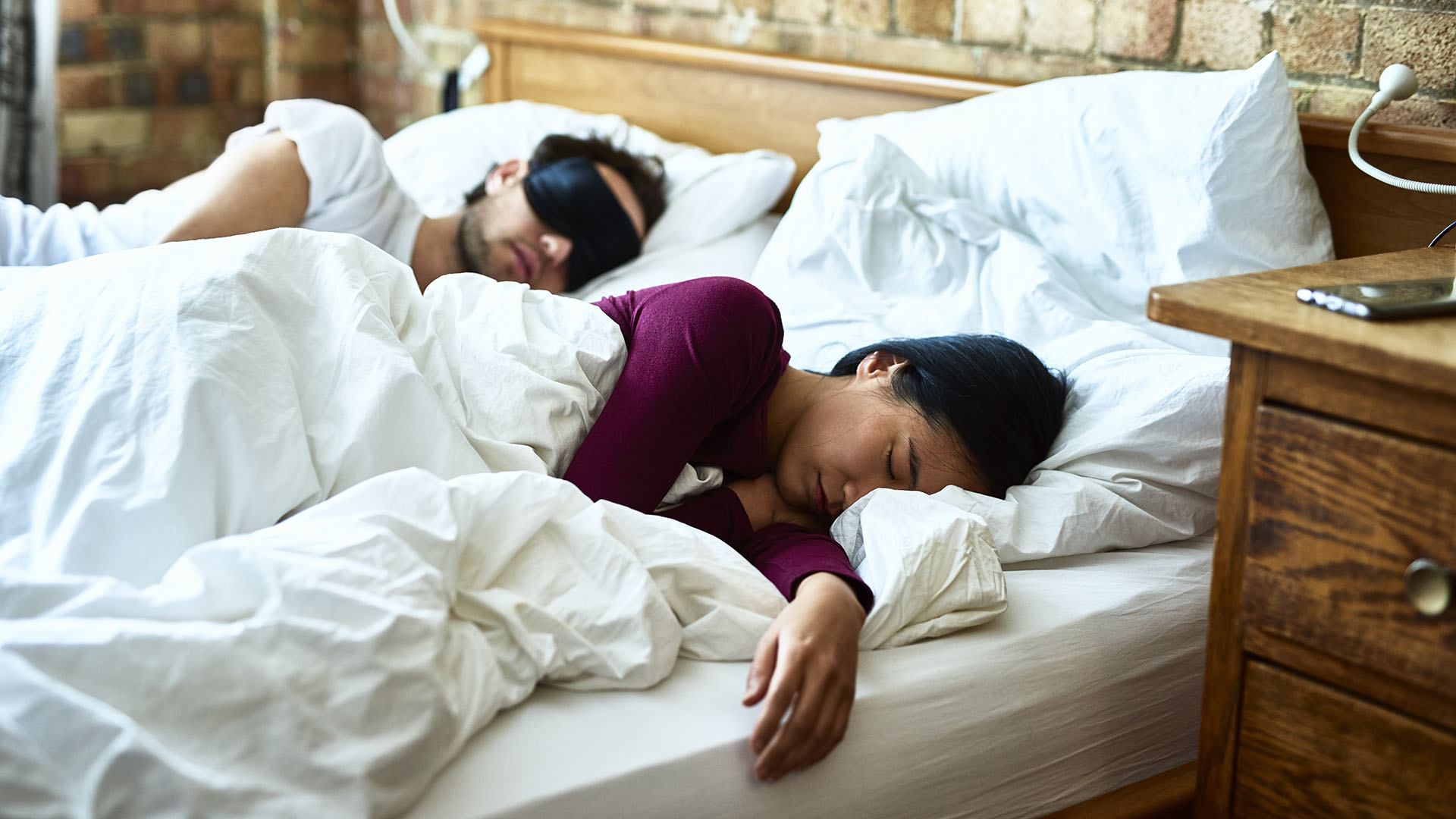
- Neutralize disruptions from bedmates
If you're sharing a bed on a regular basis, you might have whole new set of distractions to deal with. If your partner is a snorer, take a look at these tips to stop snoring, invest in some good quality earplugs, or perhaps try and look into the root cause of their snoring and tackle that. If it's tossing and turning at night, invest in a mattress with good motion isolation, so their movements are absorbed rather than reverberating across the sleep surface and disturbing your night (foam is often good for this – our best memory foam mattress guide has some great recommendations).
Fifties and beyond
Some people assume that the older you get, the less sleep you need, but Dr Lyndsey says this isn't true: the recommended amount for older adults is still 7-9 hours. She notes that you might find naturally fall asleep and wake up earlier the older you get.
"Sleep in your 50s and over is important as aging can bring along health problems, many of which can affect sleep patterns and vice versa," she explains. "Conditions that can are commonly related to poor sleep in older people include depression, anxiety, heart disease, diabetes. Further, conditions that cause discomfort and pain, such as arthritis or back pain can make falling asleep and staying asleep harder."
Other older-age factors that can affect your sleep include a more frequent need to urinate during the night, menopause symptoms, and less deep sleep meaning you're more sensitive to nocturnal disruptions.
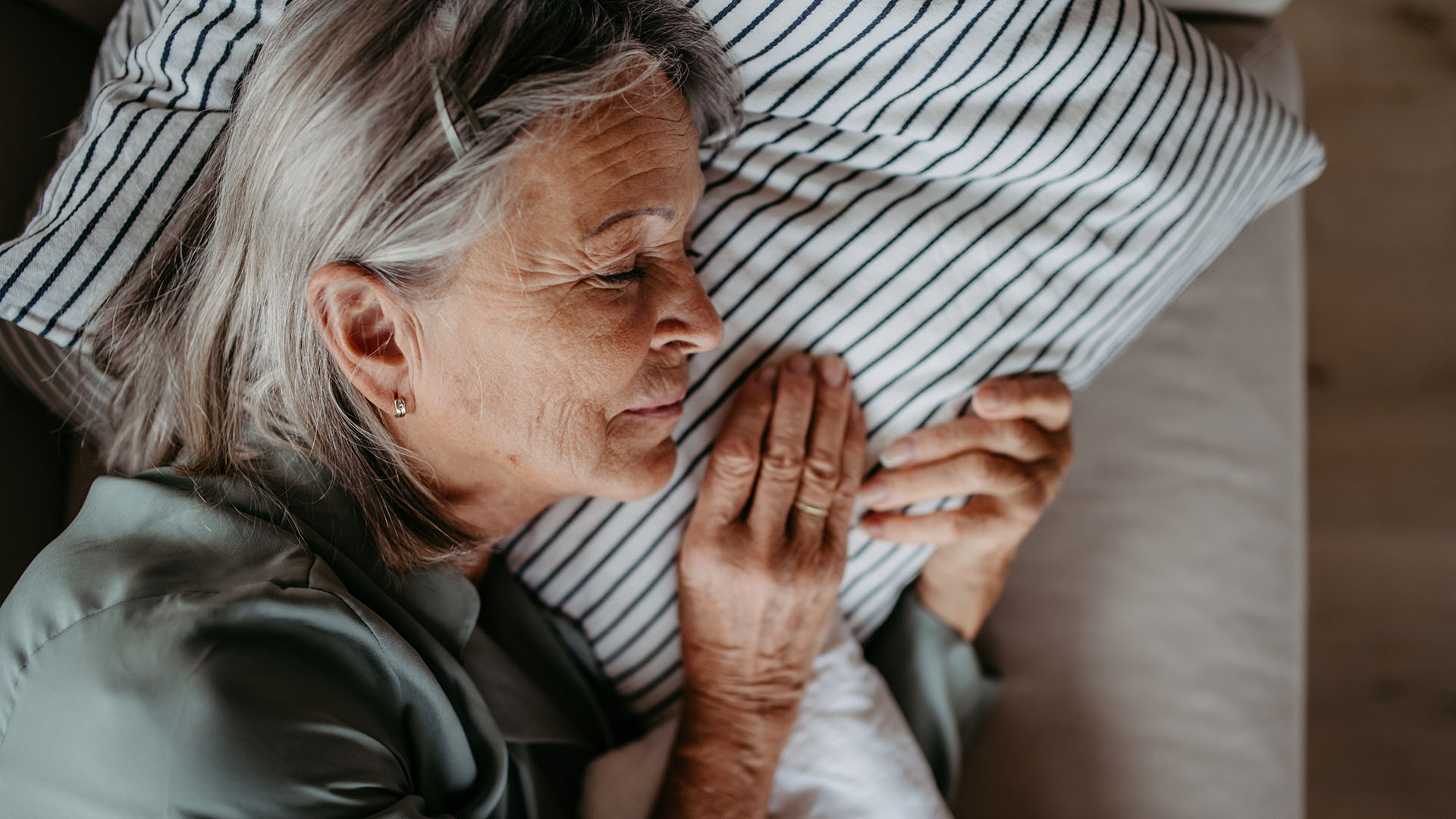
Sleep tips for over 50s
- Avoid drinking fluids directly before bed
As you get older, you might find you're needing to get up and use the bathroom more frequently during the night. While a herbal sleep tea can help you relax, it's no good if you then end up waking up in the night to wee.
To lessen the chance of loo breaks disrupting your sleep, make sure you empty your bladder right before going to bed, and avoid drinking too much fluid late in the evening (here's more on when to stop drinking before bed).
- Minimize bedroom distractions
"For both men and women it is likely that as you age, you will get less deep sleep, which means that disruptions we were once able to sleep through are more likely to affect us," says Dr Lyndsey. "The older you get, the harder you may find it to fall back asleep leading to restless, disrupted sleep."
Minimize potential for disturbances by ensuring you've got the perfect sleep environment. For example, invest in blackout blinds to keep ambient light out, consider a white noise machine, and make sure your bedding is comfortable, your mattress is supportive, and you've picked the best pillow for your sleep style.
- For menopause: avoid things that raise body temperature
The average age of menopause is 51, and many find the hormonal changes have a knock-on effect on sleep quality. "Hot flushes are most likely to be the biggest problem but other symptoms affecting sleep may be headaches and sleep apnea," says Dr Lindsey. To counter this, she suggests avoiding anything that might raise your body temperature at night, including eating late in the evening (so you're still digesting your food at bedtime), heavy or spicy foods, and exercising too close to bedtime.

Dr Lindsay Browning is a chartered psychologist, neuroscientist, and sleep expert at Trouble Sleeping. A member of the British Sleep Society and the American Academy of Sleep Medicine, she has published several academic papers and an international self-help book: Navigating Sleeplessness.

Ruth is currently Homes Editor on Tom's Guide's sister site TechRadar, where she reviews and writes about everything from air fryers to vacuum cleaners to coffee machines, as well as the latest smart home gadgets. Prior to making the shift to Homes, Ruth was Tom's Guide's Sleep Editor. A certified Sleep Science Coach, she has tested more mattresses than her small flat can handle and will talk at length about them to anyone who shows even a passing interest.
